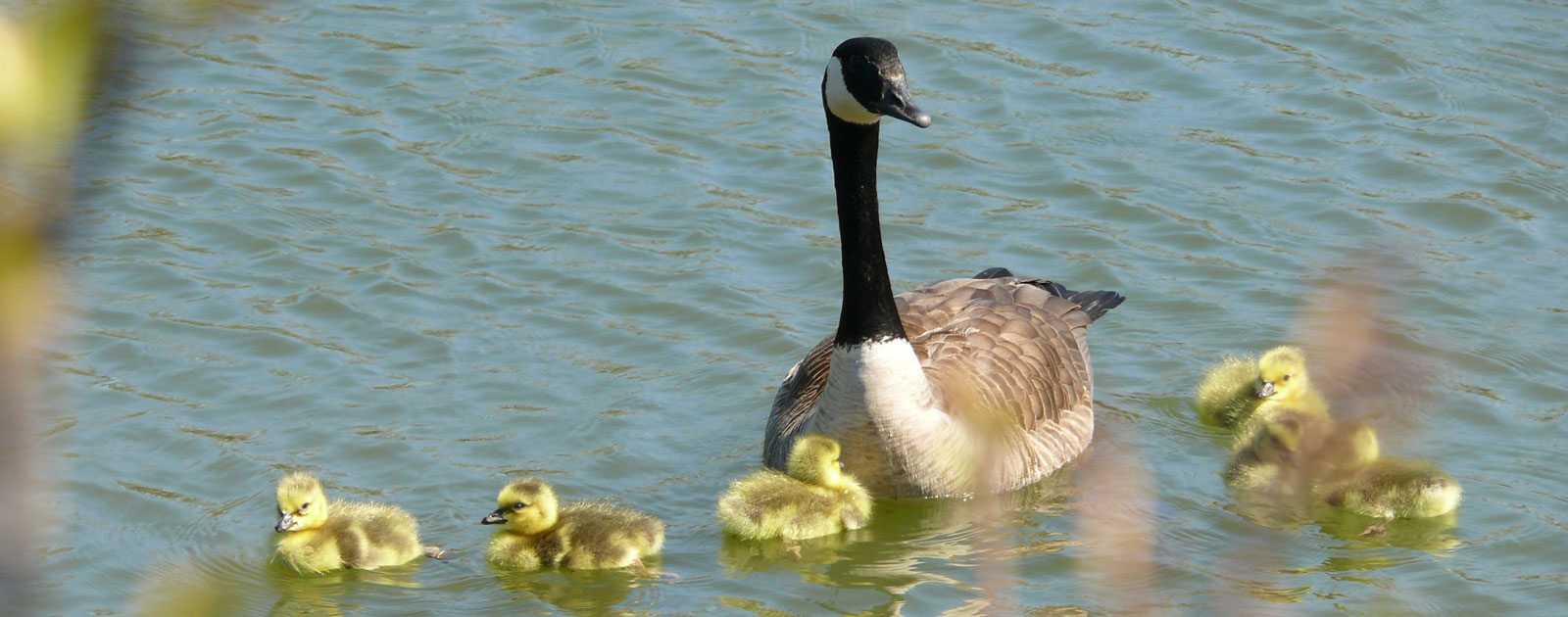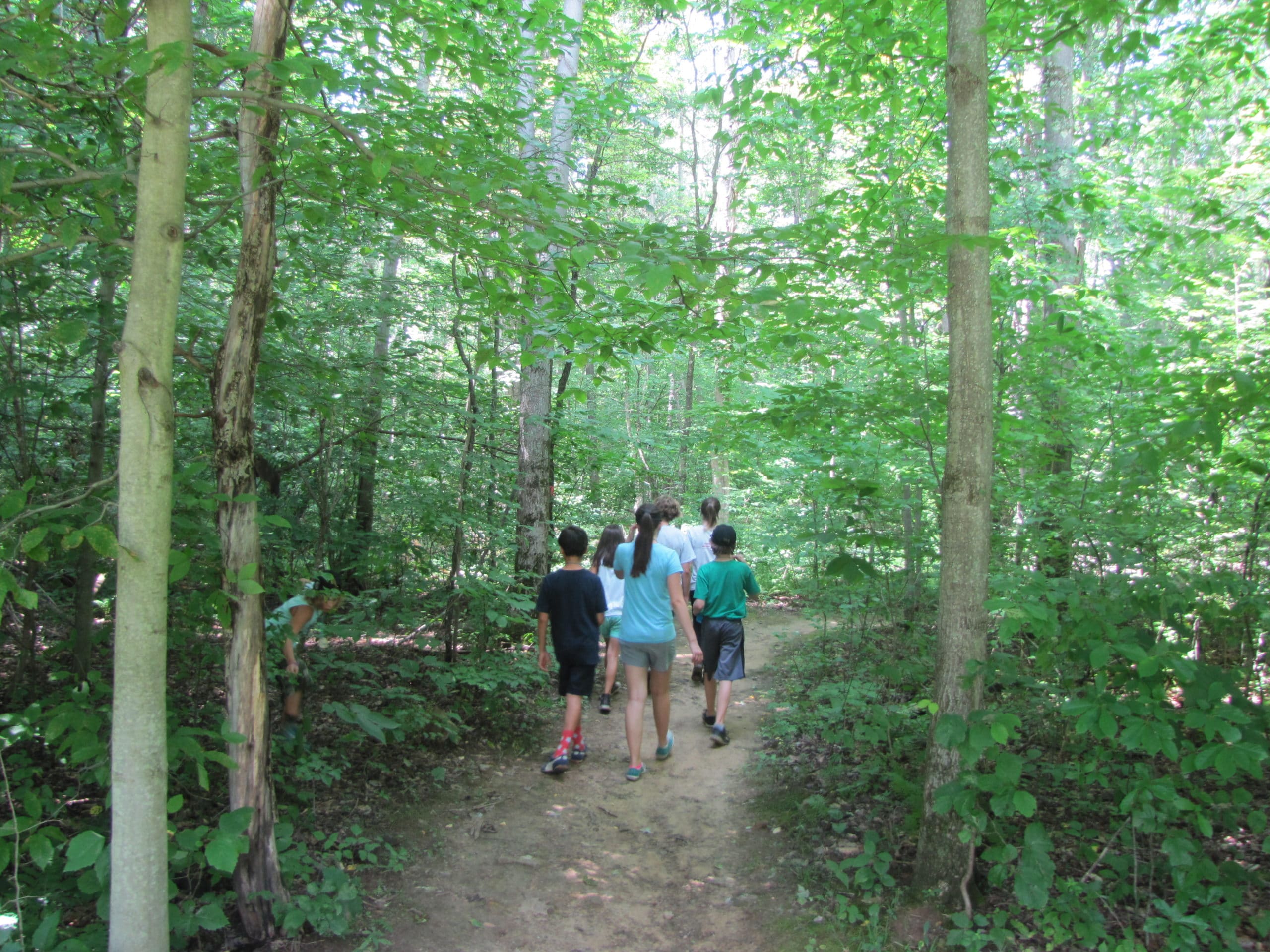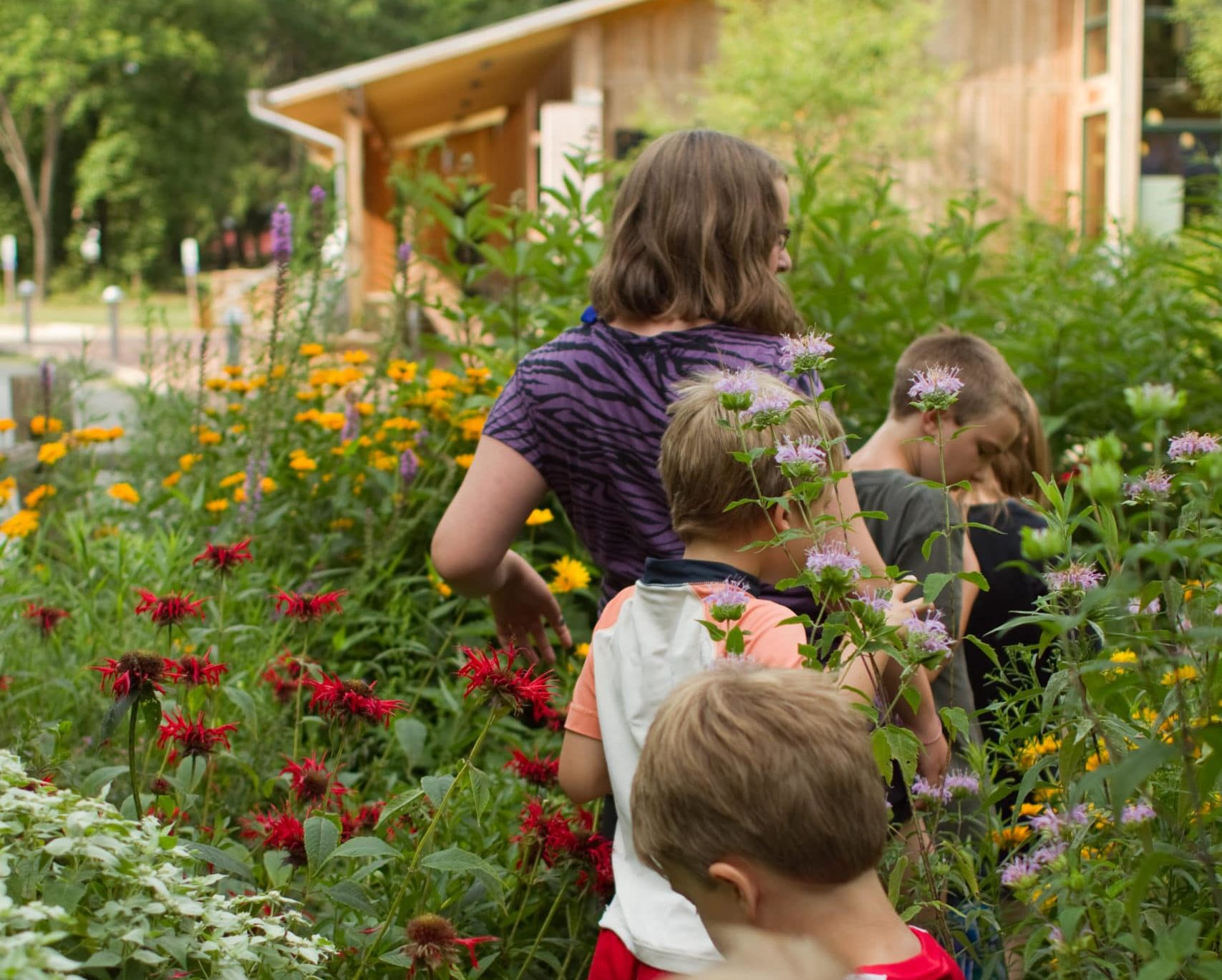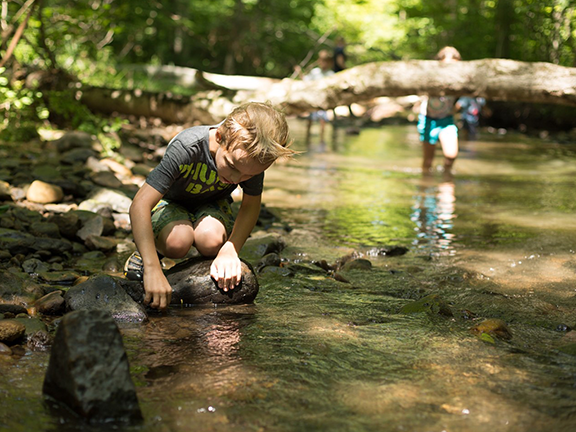Carnegie Museum of Natural History
One of the Four Carnegie Museums of Pittsburgh

Schools, scouts, and other groups can enhance their visit to Powdermill Nature Reserve with rich, hands-on learning experiences guided by our knowledgeable educators. We welcome the opportunity to create unique programs that complement your school curriculum or scouting adventure, and we are happy to adapt the programs below to the interests of your group.
Step 1. Before You Book Your Field Trip – Gather Information
- Field trips must be booked at least four weeks in advance.
- Have a preferred date and back up dates ready when booking.
- Have the number of participants and adult chaperones attending your field trip.
- Know if your group has any special requests, like lunchroom reservations, accessibility needs, or curriculum focus.
Step 2. Choose a Field Trip Program
Chaperones and teachers are admitted free for field trips. Costs listed below are applicable for groups of 10 students or more. Smaller groups pay the 10-person minimum. Groups are welcome to schedule unguided visits to the Nature Center at no cost.

Guided Hike
60 min – $9/participant
Spend an hour hiking the beautiful Black Birch Trail and experience the rich woodlands of Powdermill Nature Reserve! Observe plants and animals in their natural habitats, see evidence of historic land-use, and view the exceptional Powdermill Run. This hike can be adapted to fit a focused topic.

Powdermill Gardens
60 min – $9/participant
Visit each of Powdermill’s four distinct outdoor gardens, and find specific herbs, wildflowers, barrens plants, and pollinators. Determine the plant adaptations needed for each garden.

Powdermill Avian Research Center
$9/participant
See wild birds up close, and learn about their biology from Powdermill scientists. Learn about avian research projects to prevent bird-glass collisions during migration, bird banding, and high-tech tracking with nanotags. Please note that tours of the bird banding station may be cancelled in rain or hot weather to protect the safety of birds.

Stream Study
60 min – $9/participant
Jump in and get your feet wet in Powdermill Run to search for macroinvertebrates! Explore how scientists use these tiny organisms as bioindicators to help determine stream health. Learn how to safely capture and examine macroinvertebrates while investigating their adaptations, diversity, and role in the environment. Participants will be required to wear appropriate clothing and footwear to enter the stream.
Step 3. Book Your Field Trip
Please contact us for all group visits (guided or unguided) so that we may schedule your bus parking or large group around other visitors. Parking for buses is available on a limited basis.
Our field trips remain available to book, but delivery methods will be adapted to adhere to current health guidelines at the time of your program. We’ll reach out 2 weeks ahead of your scheduled program to discuss the specific experience you can expect to have during your visit.
